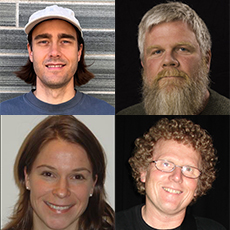Collaboration Between Social Workers and Music Therapists in a Child Welfare Context for Unaccompanied Refugee Children
A Focus Group Study
DOI:
https://doi.org/10.15845/voices.v24i3.4071Emneord (Nøkkelord):
unaccompanied refugee children; community music therapy; social work; interdisciplinarity; sustainability; task-shifting/task-sharing, children’s rightsSammendrag
Migration poses a complex global challenge, particularly for unaccompanied refugee children. In Norway, almost all of these children suffer from mental health issues and face settlement challenges. These young people are placed in care homes within the child welfare system, where they have the right to participate in cultural activities, in accordance with the United Nations Convention on the Rights of the Child. Research indicates that cultural activities, such as music, are beneficial for their well-being, yet access is often limited. Social workers play a crucial role in addressing these needs. This study explores how social workers reflect on the role of music in their work with unaccompanied refugee children, and the implications of this role for music therapy. We conducted semi-structured focus group interviews with eight social workers experienced in child welfare services. Thematic analysis, using the Stepwise Deductive-Inductive method, was applied. Social workers noted that music helps young people cope with emotions and facilitates dialogue. Organised cultural initiatives provide nonconfrontational spaces promoting safety and belonging. However, social workers highlighted the need for knowledge, resources and competences linking music and health. The findings are discussed in the context of community music therapy, emphasising the role of music therapists as catalysts and supervisors in integrating cultural activities within child welfare.

Nedlastinger
Publisert
Hvordan referere
Utgave
Seksjon
Lisens
Opphavsrett 2024 Ole Kristian Einarsen, Viggo Krüger, Ingunn M. S. Engebretsen, Brynjulf Stige

Dette verket er lisensiert under Creative Commons Attribution 4.0 International License.
Articles published prior to 2019 are subject to the following license, see: https://voices.no/index.php/voices/copyright

